Dear Friends of Arakan Nature Lodge
Building Myanmar’s first true eco lodge is of course a stop-and-go venture! With the long awaited rains of the monsoon reaching this lovely coast at the beginning of last June, our daily tasks shifted from building structures towards securing our small, yet amazing achievements. First of all it meant looking around closely for what was happening with all the sudden waters arriving fast, bringing with them a refreshing cool air.
Monsoon rains in Rakhine State develop with notorious intensity. June-August monthly rainfall reaches levels of 3lt/sqm or 300mm, when the previous months were near to zero. Cyclones are not unheard of. The graph below shows you why any beach lodge around had better close down during these three months of precipitations!
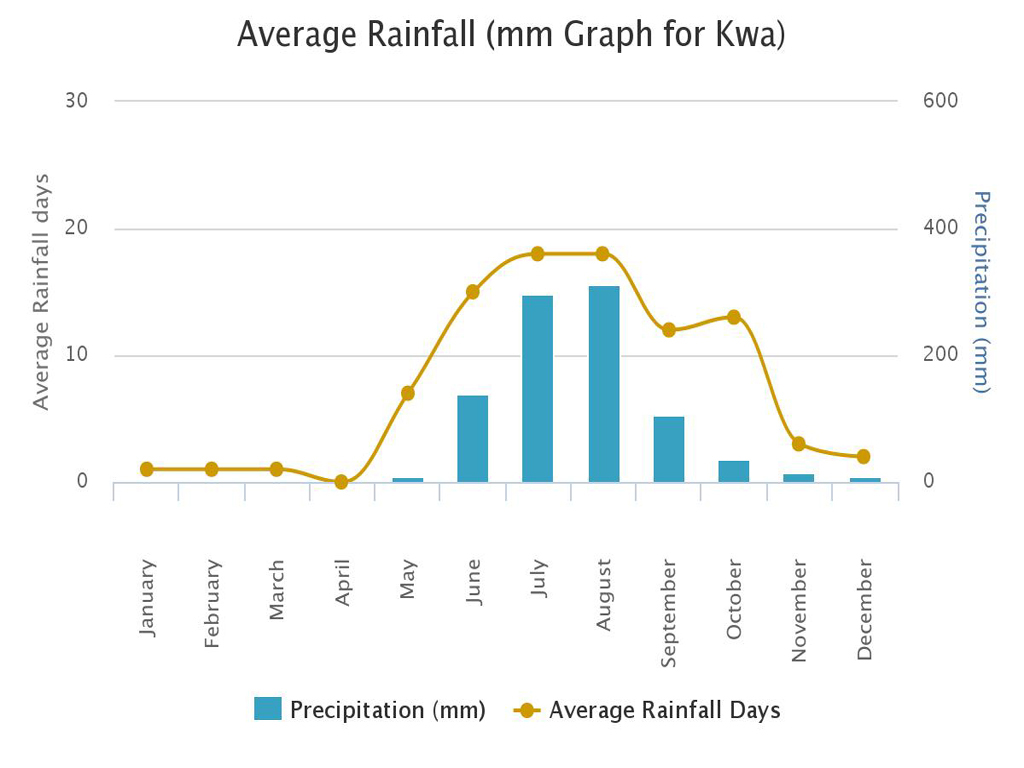
The graph also illustrates how fine and sunny our weather is during most of the year. December until April, humidity levels decrease to a very comfortable feel of air, neither humid nor sultry. Yet, clearly it is the monsoon alone that replenishes all wells and refills all mountains, rivers and paddy fields.
The monsoon had better be generously wet if its gift of water is to last for months ahead. Water is such a precious element!
Farming
For our villagers the arrival of the monsoon means that hard work begins: Once sufficient first rainfalls have come the farmers get their fields ready with ploughing and dam rebuilding. This is still largely done by hand and with the help of oxen alone. Hardy ones are even rented out around to work on other’s fields. By the middle of the rainy season planting of rice seedlings starts.
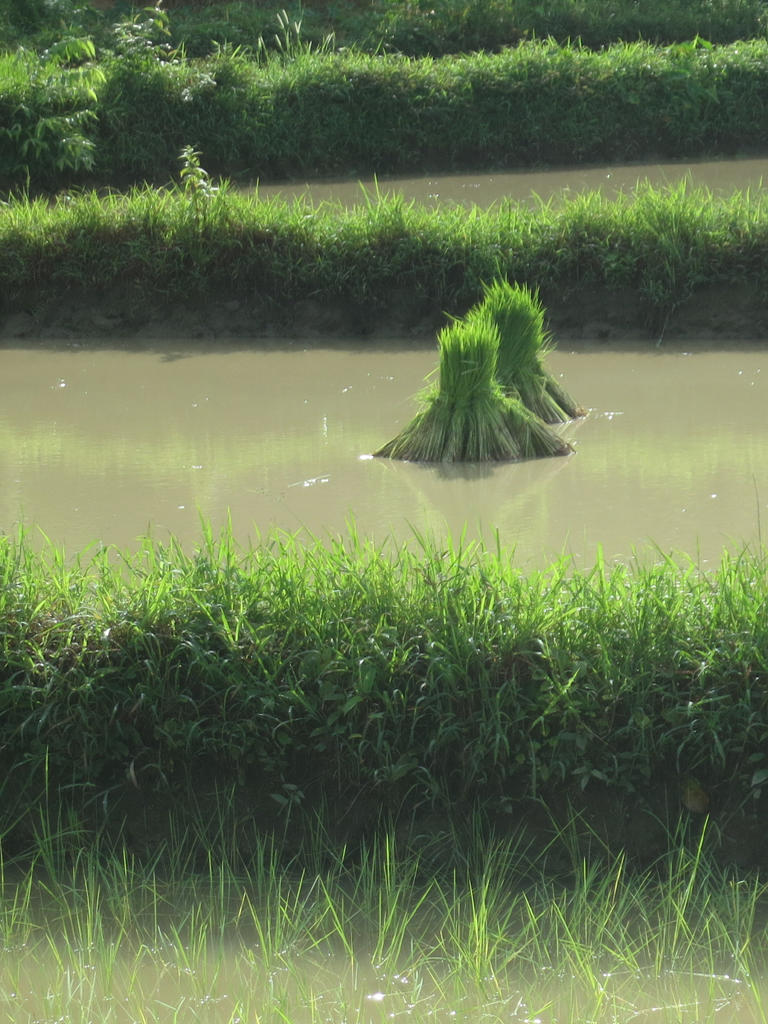
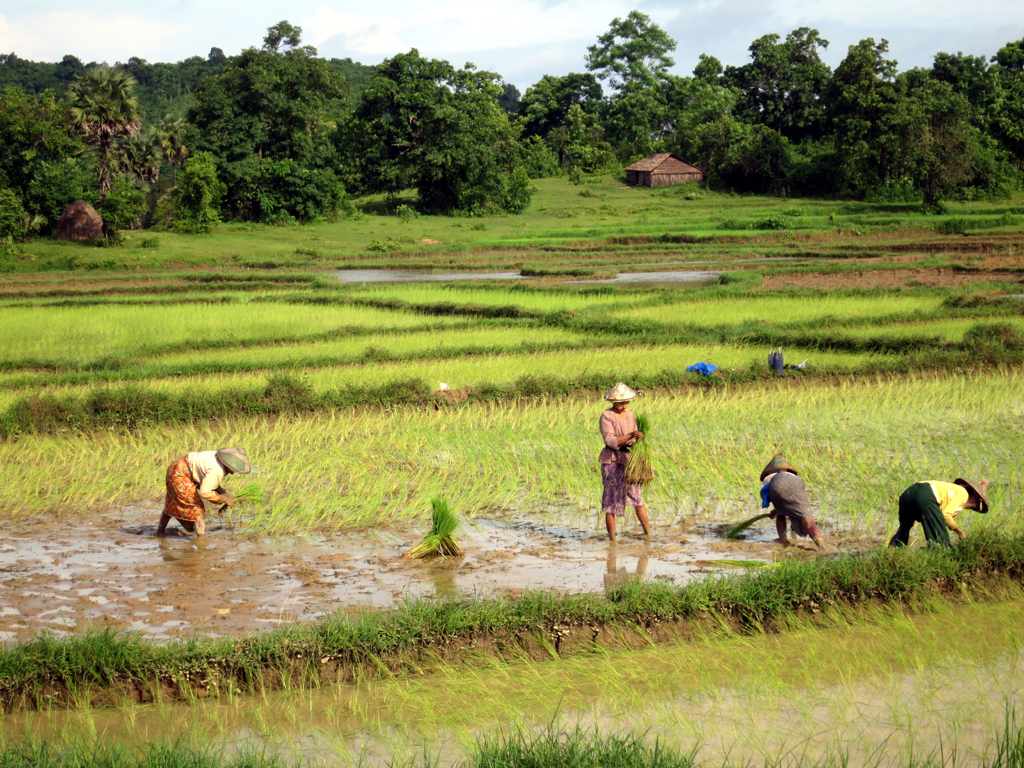
Landowners get the help of daily labour, many of them women, for the paddy fields to be planted in time. Meanwhile the landscape’s total picture is completely transformed into lush green. Trees that were barren explode with foliage and all kinds of flowers blossoming wherever you look. Mangos are ripe to be devoured. The monsoon is an extraordinary time of renewal and reawakening of life!
The fishermen around have tied their boats safely in backwaters. They are on a long holiday now, which, if they don’t go for farming or other jobs far away, often leaves them with little to do in no time. There really isn’t much extra that people here can make, earn and hold on to. With my non-native eyes I consider it a very humble way of life.
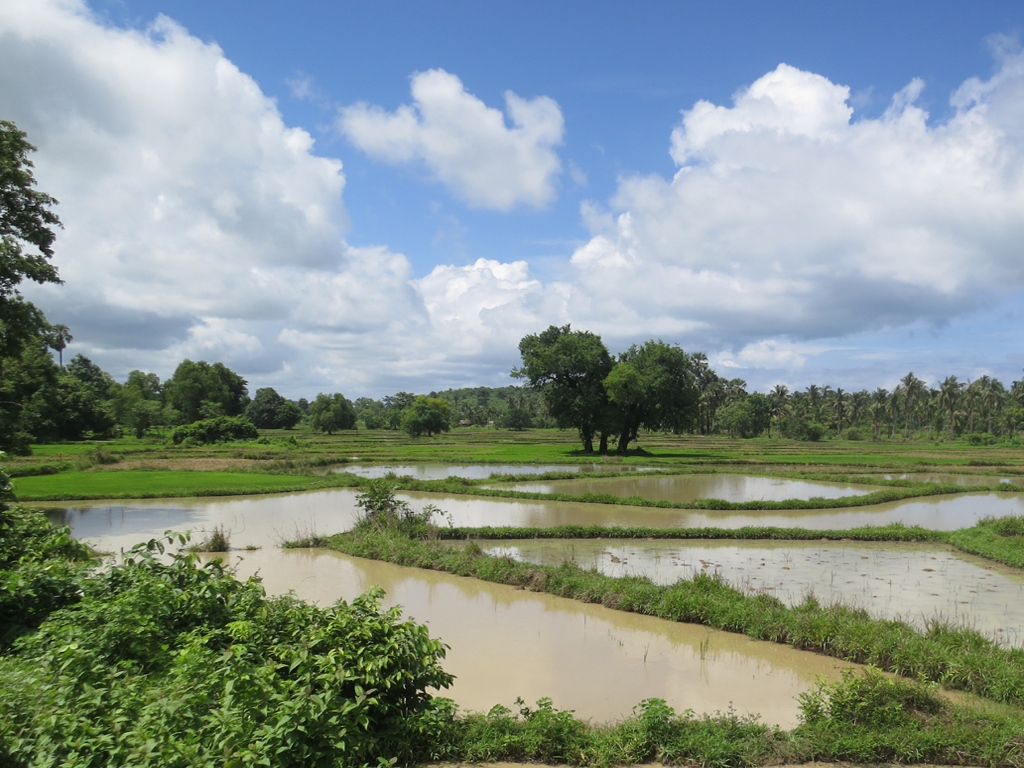
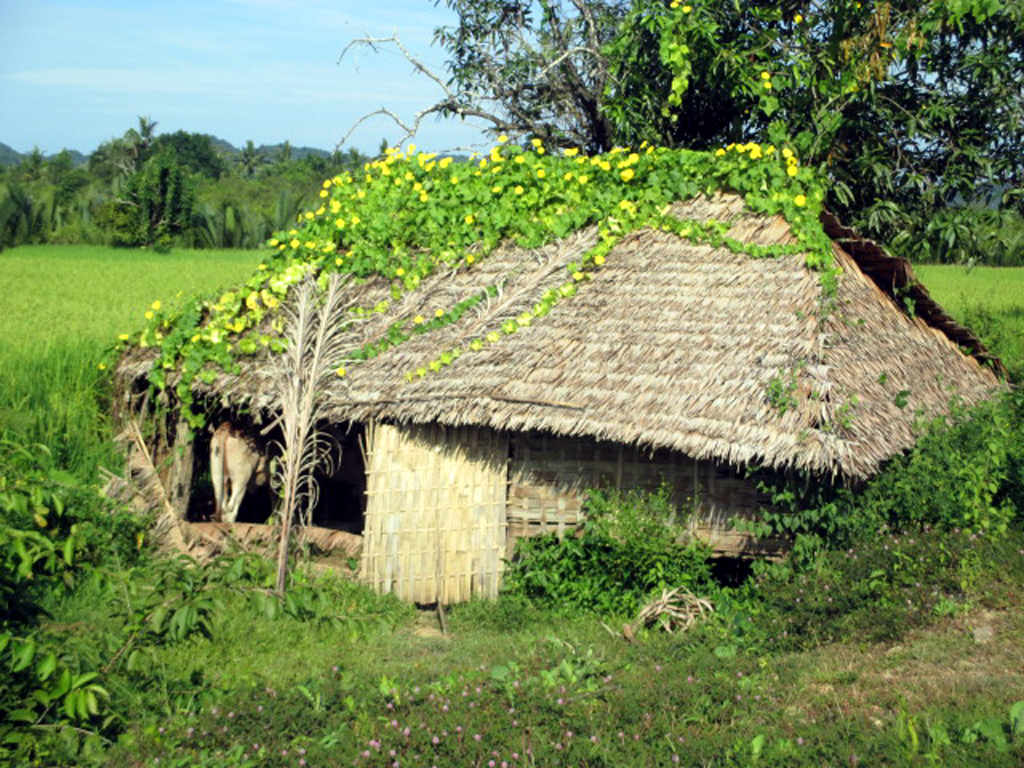
Building permit in the rain
We started the first building activities in March (see Newsletter One) – then out of the blue we learned that we are still to apply with the Ministry of Hotels and Tourism for a final hotel project approval. Stop-and-Go. We had already started the reception building, three beach houses and our service building. Their main structural poles and beams were solidly grounded and standing. At first not sure how to go on, we realised that our way of building leaves next to no footprint anyway. We confidently continued with the roofing – to be in the dry when the monsoon rains would hit.
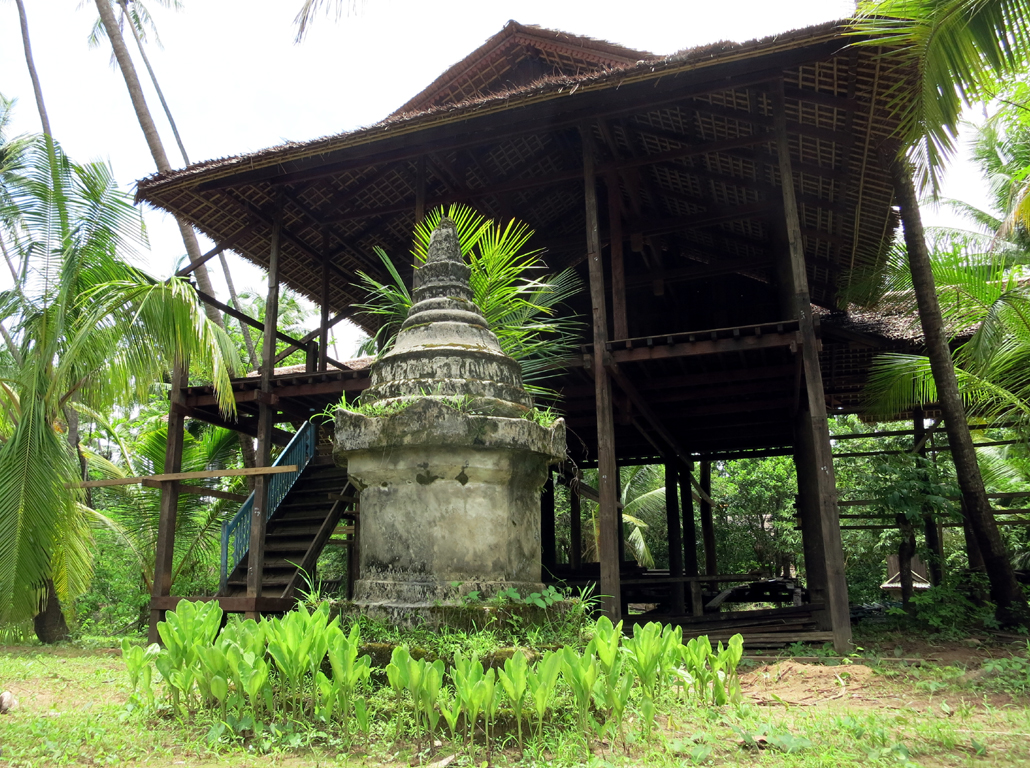
By the beginning of June, impressive progress was visible and we could be confident that subsequent building of floors, walls, windows, doors and terraces would be possible with such good roofs as had been made.
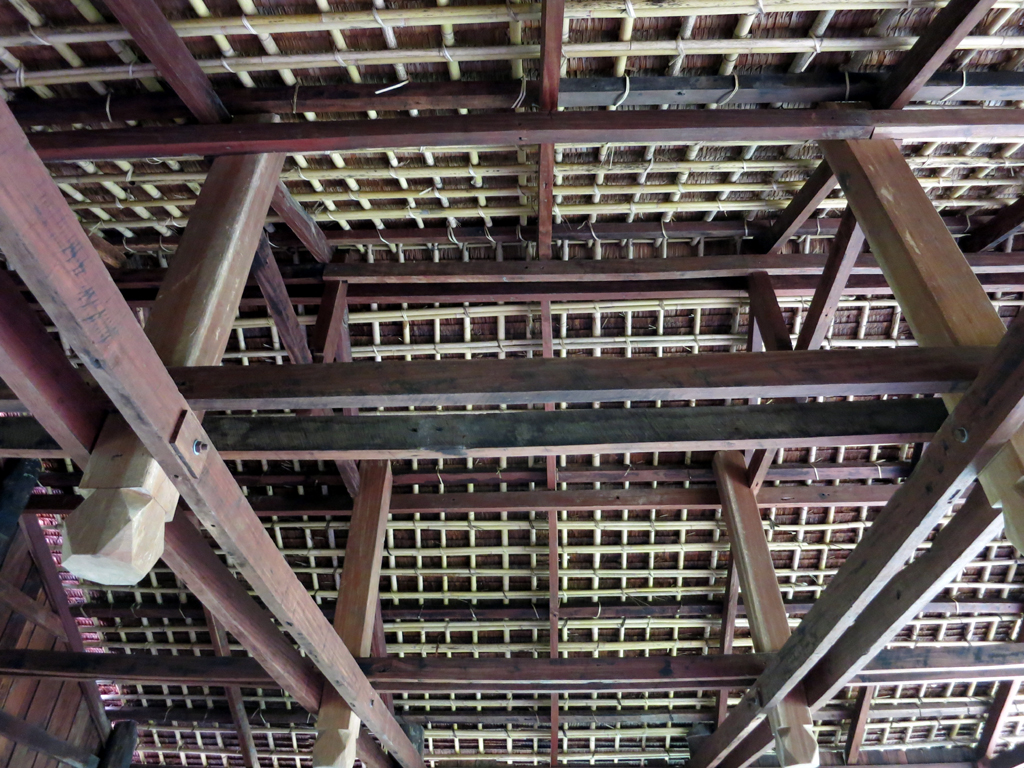
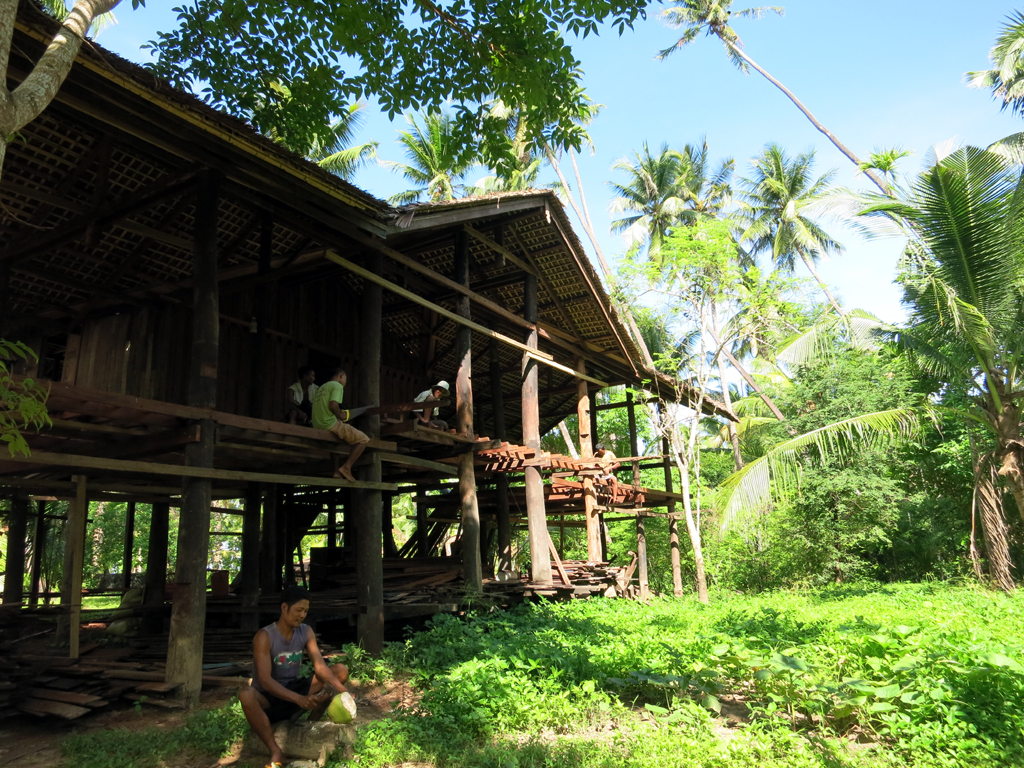
Permit application procedures involved some redrawing of our building plans and answering many questions on official forms as well. Then a site visit by one of the ministry’s officials took place. At long last end of August, we were happy to get the Ministry’s approval and permit in hand.
Beach line rescue
The sea level is known to rise significantly during these months. Around full moon, the tide would come up to embrace our land to shore line. We renewed our sandbags-stones fortification onto the beach but this year, it did not seem to work to keep erosion at bay. The bags were bad quality and just easily sank into the shifting sand. Stones were moved around by the heavy tidal waves – and got lost. Then two of our northern-most coconut trees fell prey to the sea. It was a sad moment and made us think about global warming and how many places around the globe would be affected if sea levels generally continued to rise. An impressive moment of truth that the sea is so much stronger than we are, even though water is soft as well as so powerful to sweep things away.
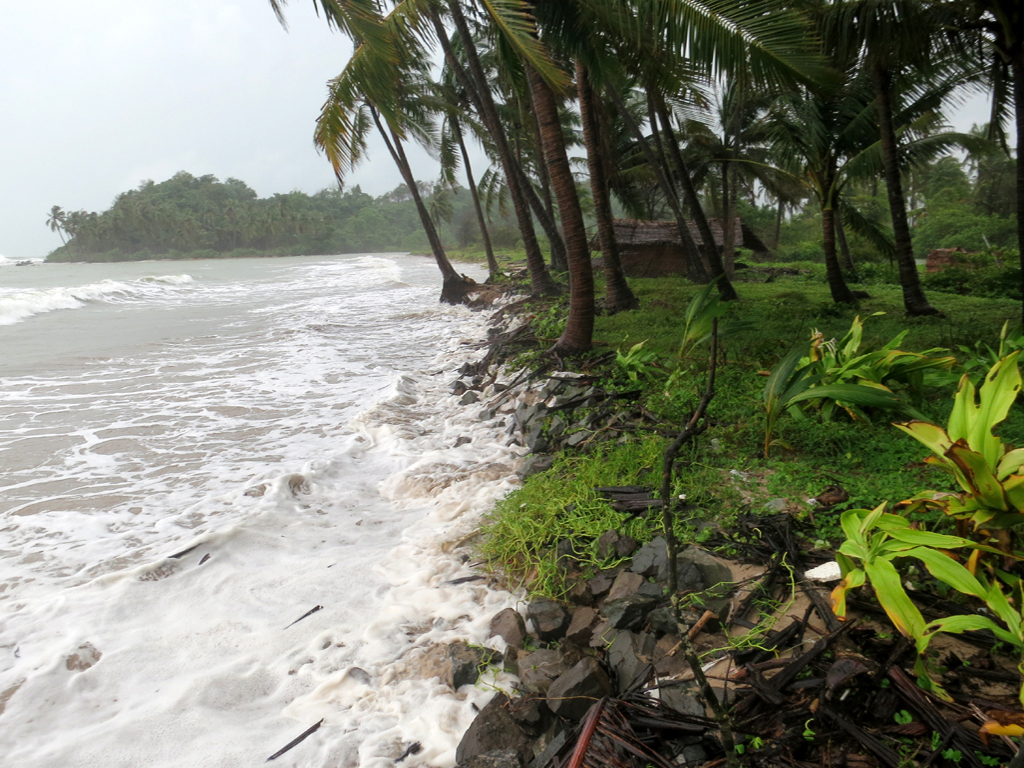
So our team pondered over a new idea how to help our shoreline stay in place. Building any of the controversial retaining walls you see all over Ngapali was out! How about working with iron grids half buried in the sand, stabilized by iron poles and ropes attached to trees in the back. The grid could be filled with coconut leaves and stones in layers, both abundantly available. We constructed a prototype, here:
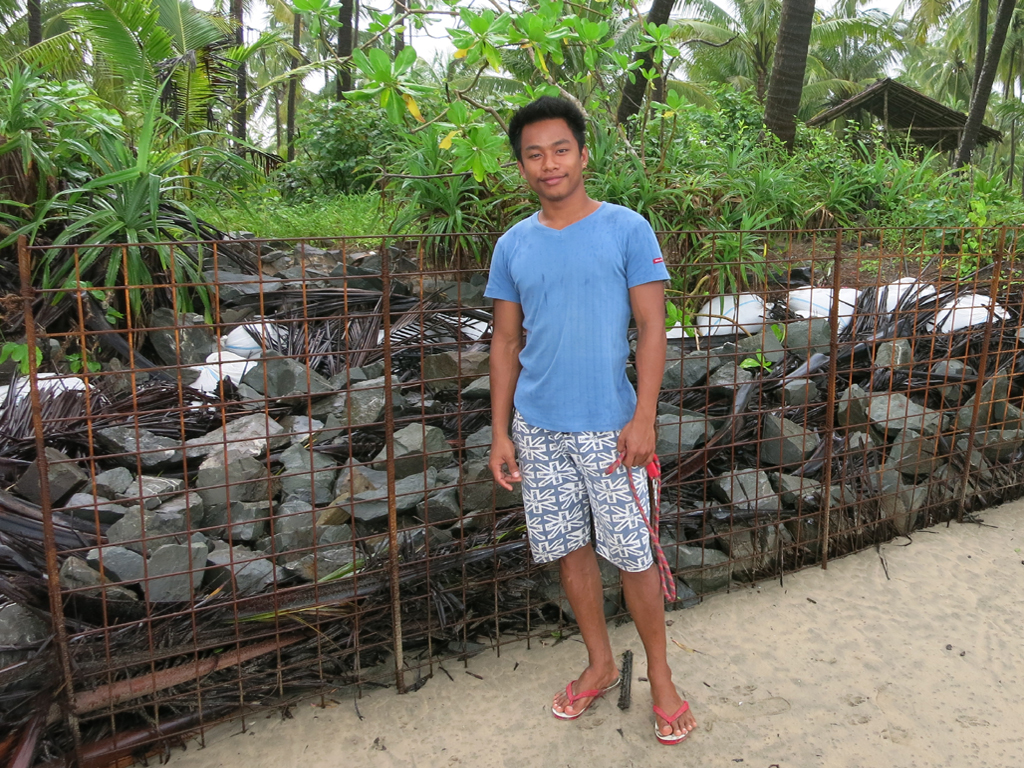
Looking a bit messy and shaky at first, it seemed to be working!
We observed it for some time with heavy waves rolling in, then made final adjustments and produced better grid elements, fixed and filled them accordingly, then put them out along the northern shoreline quite close to the land breaks. We are confident that if it works it is a set-up/pack-up solution of which all materials can be recollected once the dry season starts, to be stored and reused for the next monsoon season. We wish to leave our beach area in natural beauty – yet the test of time will tell.
Village matters: Roads…
With the rains setting in, our village has many spots where small bridges have lots of drainage water flowing away. At times though, parts of our unpaved lanes also get washed down as well. The Government offers extremely limited funds to repair them. So we happily joined a village initiative of taking these matters in our own hands. Together with volunteers of our village and in coordination with our village council, repair works got started to which we donated broken stones and labour.
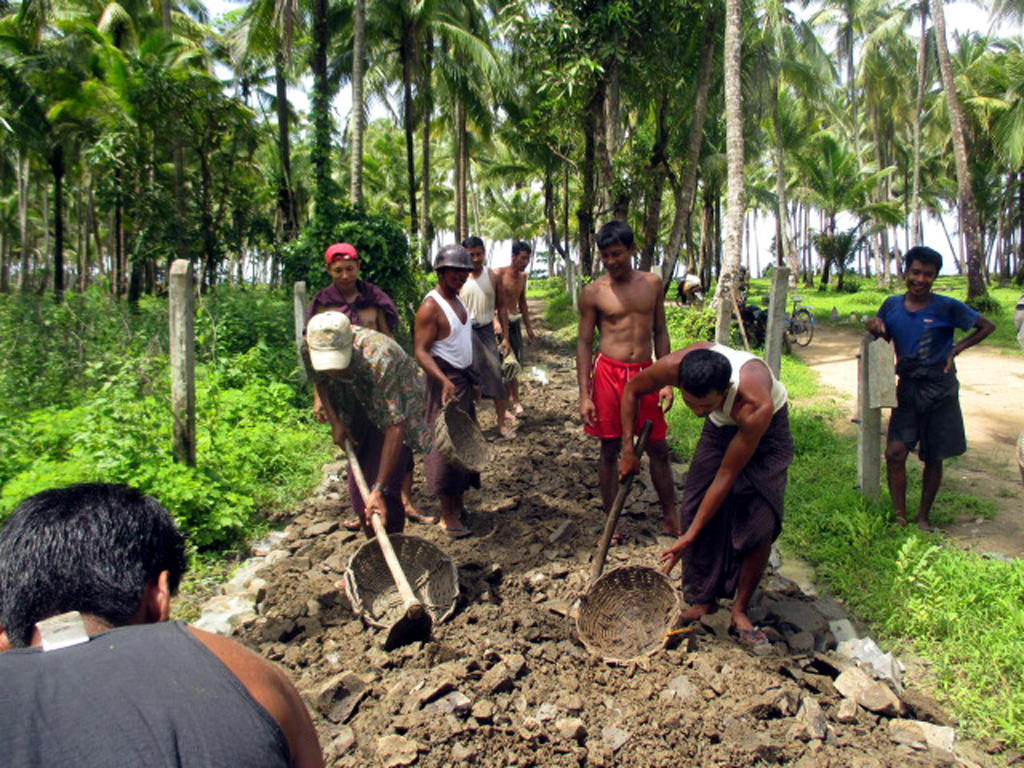
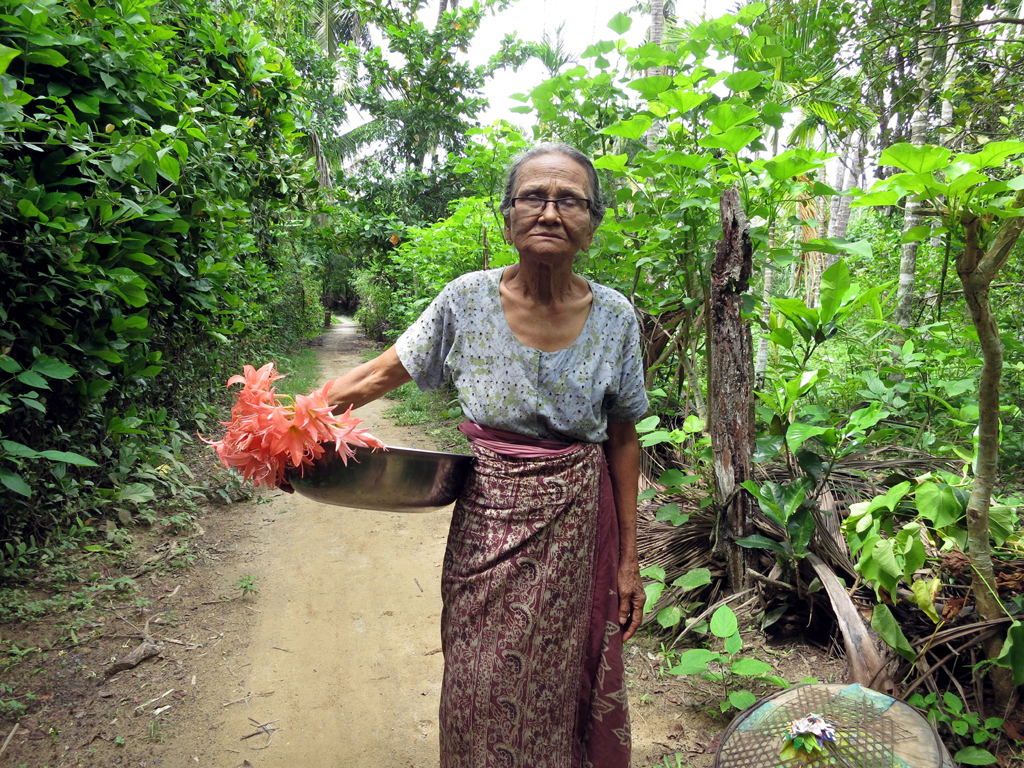
…and health
We were called as well for an ambulance transport of a seriously ill villager. When I arrived at his house I found him in a deadlocked of “status asthmaticus” where nothing could be done to help ease his breathlessness except bringing him straight to hospital. His condition was nearly beyond transportation. The patient tried our front seat but felt too much constrained. So together with his family members we bedded him on the pick-up platform of our Ford Ranger, then we drove him 3 hours north to Thandwe hospital. We were extremely happy to be of practical help.
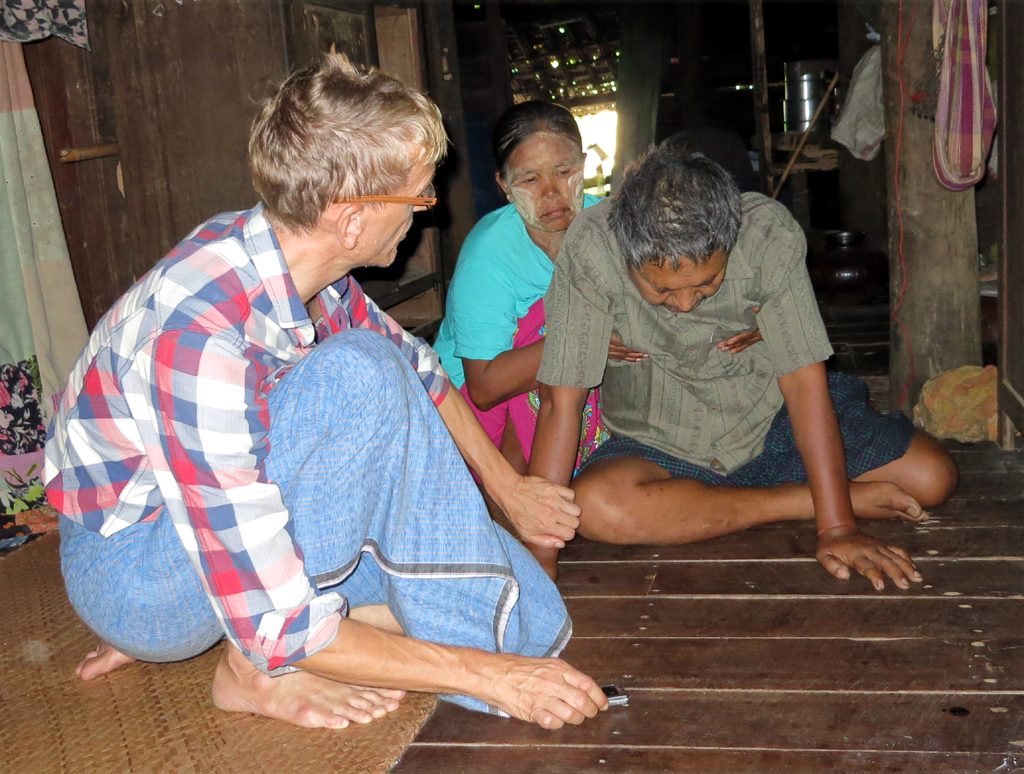
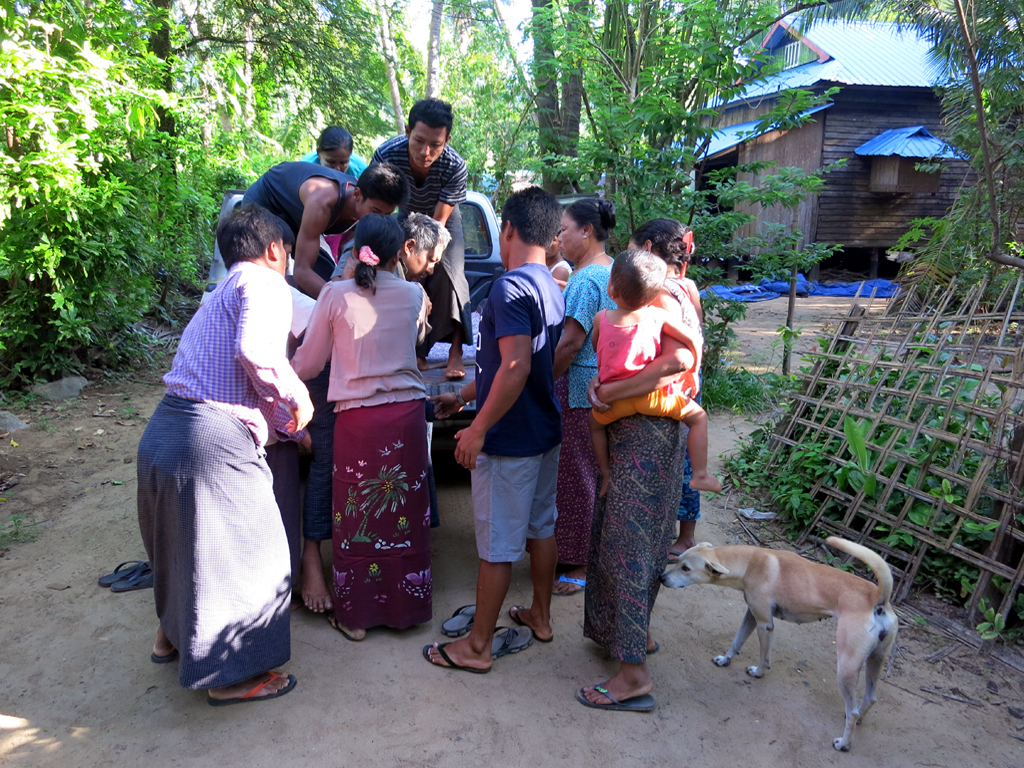
My profession as a nurse adds some comfort and confidence. We offer such urgent transportation to all villagers free of charge.
Our first special guest(-worker:-)
This month of October we’ll be welcoming Paul Schreiber from Berlin. He is a master student in Sustainable Tourism Management at University Eberswalde doing his practical with us. During the coming four months, he will be researching the topic of community involvement with our lodge. Another field he’ll get involved is the development of our own best marketing strategy. Paul already brings along lots of practical international hotel work experience. We are very much looking forward to his ideas and inputs to develop well in a truly sustainable, community-oriented direction.
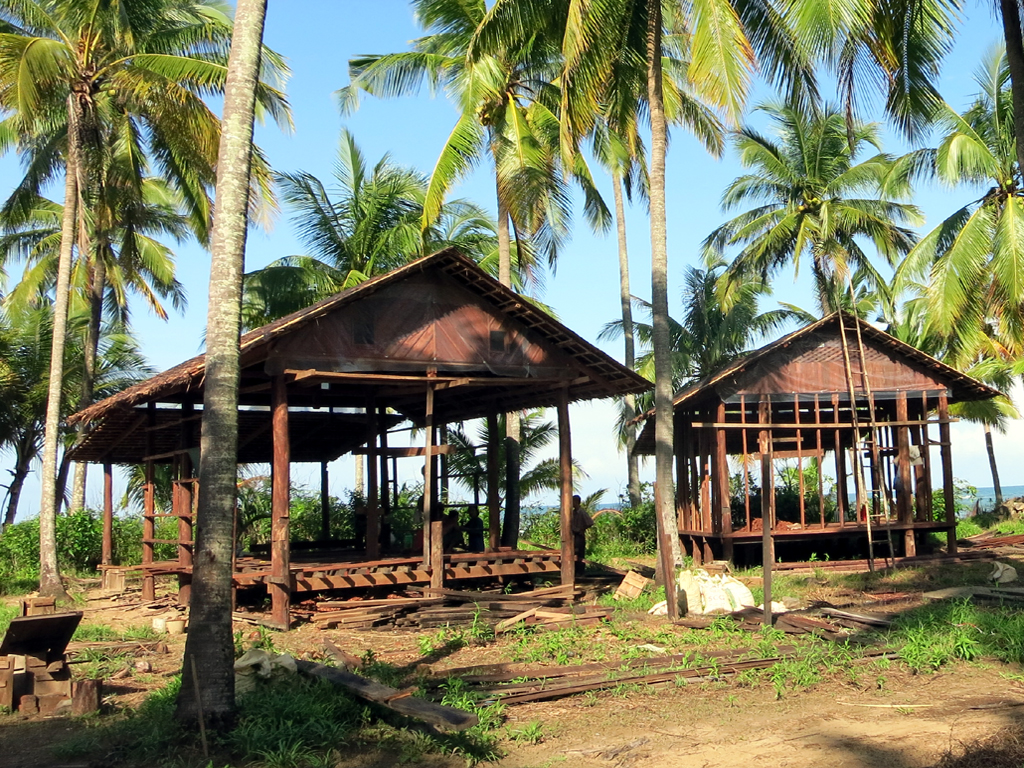
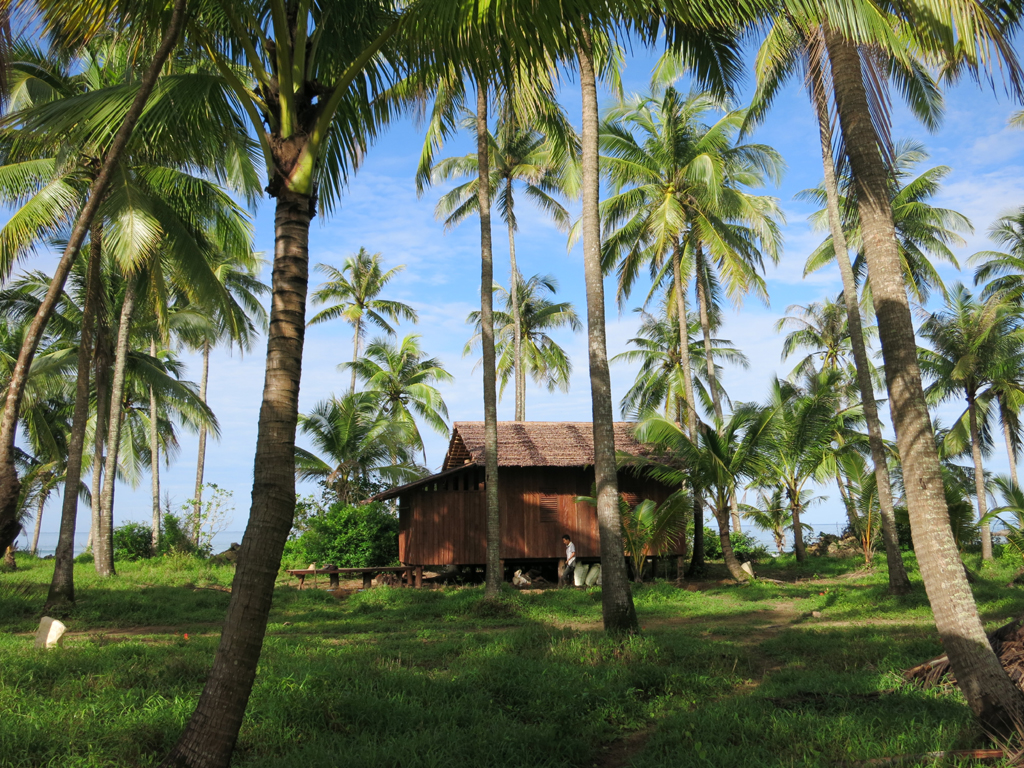
When can we come?
This is a question we hear often. Well, as you may guess, the next six months will be reserved for building with our village teams in the full setting up of sweet Arakan Nature Lodge. I can give you some hints though as to when we may be able to start receiving you as our guests –
MARCH 2017 – Soft Opening
OCTOBER 2017 – Full and official opening
We’ll of course keep you posted!
With appreciation and warmest greetings and on behalf of the Arakan Nature Lodge team.





